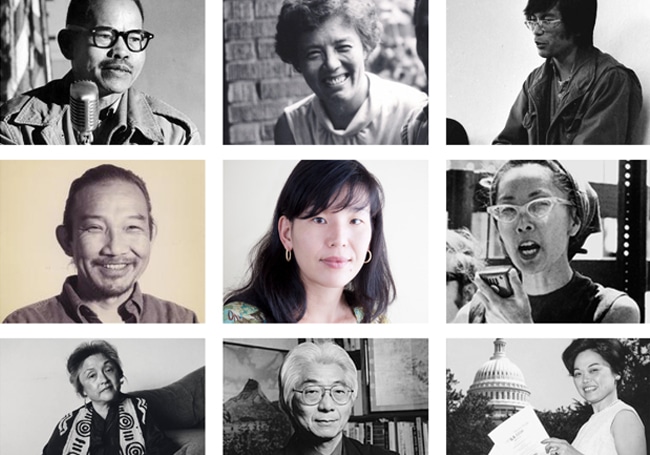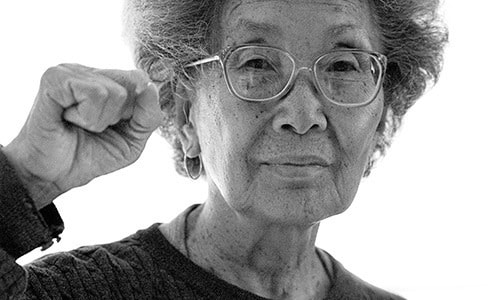 Yuri Kochiyama, “Then Came the War” (1991)
Yuri Kochiyama, “Then Came the War” (1991)
Yuri Kochiyama and her family were among 120,000 Japanese Americans on the West Coast rounded up in a wave of anti-Japanese hysteria.
Following the bombing of Pearl Harbor, President Franklin D. Roosevelt gave the army power to arrest all Japanese Americans (three-fourths of them children born in the United States), take their land, homes, businesses, and transport them to camps where they would live under prison conditions.
Sandra Oh reads Yuri Kochiyama, “Then Came the War” (1991) on Japanese internment from Voices of a People’s History on Vimeo.
Film Clip Description
Yuri Kochiyama describes the conditions of the detention camps. This text is from an oral history that Kochiyama recounted to Joann Faung Jean Lee. It is excerpted from Lee’s book, Asian Americans: Oral Histories of First to Fourth Generation Americans from China, the Philippines, Japan, India, the Pacific Islands, Vietnam, and Cambodia (New Press, 1992). The text was read by Deepa Fernandes on March 10, 2007, at the Great Hall at Cooper Union, New York, NY. The excerpt is from Voices of a People’s History of the United States edited by Howard Zinn and Anthony Arnove.
More video clips can be found at the Voices of a People’s History website and in the film The People Speak. Learn more about Yuri Kochiyama at the Yuri Kochiyama Solidarity Project website.









In Santa Cruz, I saw for the first time an outdoor enactment – down to the actual bus that took Japanese families to the concentration camps; their wearing attire – down to their shoes – from that era. The public heard the somber speeches by the Japanese – legal U.S. residents – giving their last solemn speech to their neighbors and friends in front of the courthouse.
So moving was production, that when the public was finally invited to enter the bus; to view the authentic bus taking the residents away, I could not bring myself to enter. It felt to me, as if it were a kind of shrine. I could not bring myself to disturb the rows of ghosts; long ago residents who had been forced to leave where they rightly belonged.
A phenomenal woman and a friend!